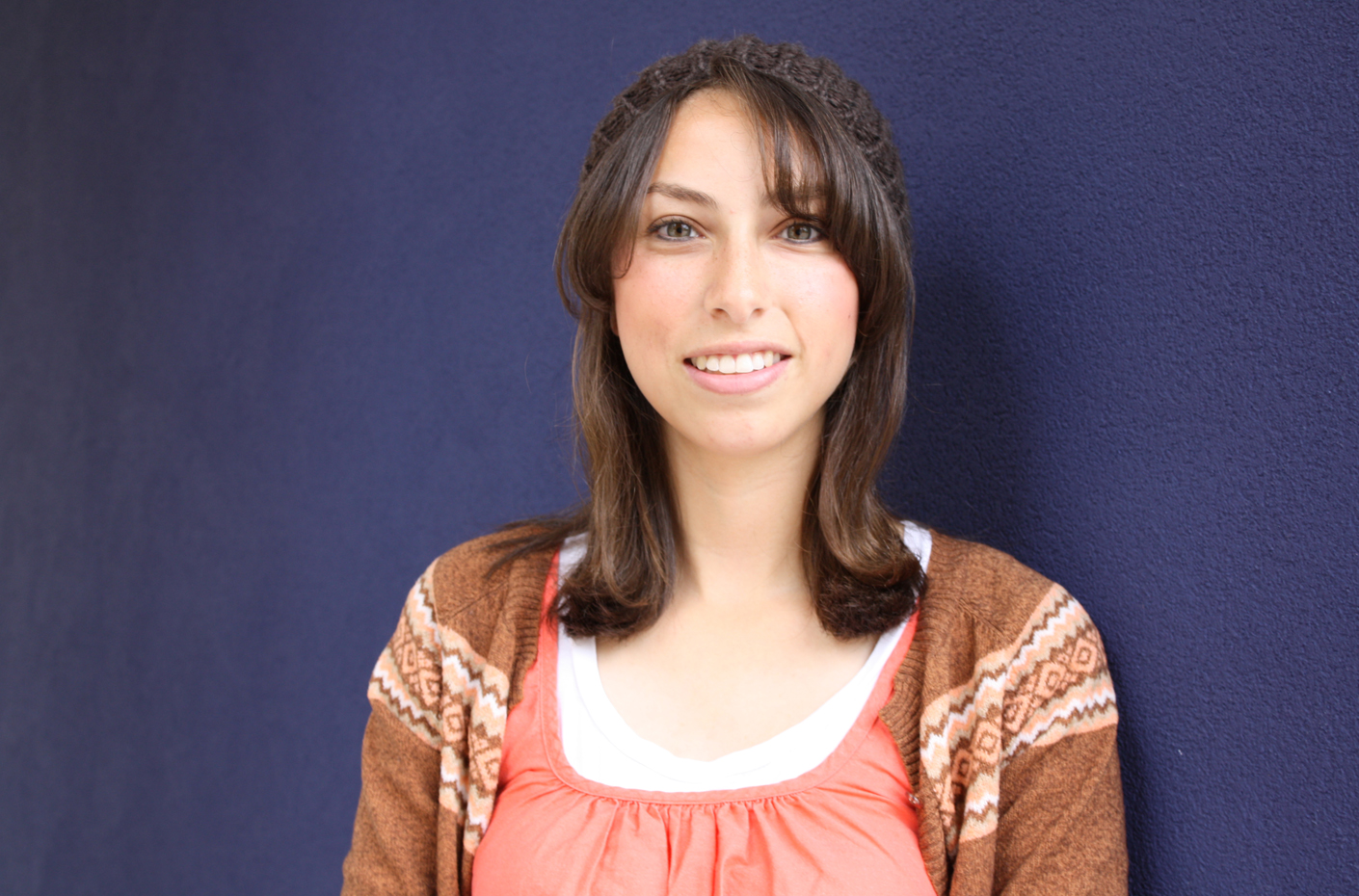Scholarship spotlight: Claudia Moya

Scholarship spotlight: Claudia Moya
- November 22, 2010
- Recipient of the 2010-11 Reza Zarif and Rufina Paniego Undergraduate Award for Excellence in Anthropology
 Claudia Moya, anthropology undergraduate, is the 2010-11 recipient of the Reza Zarif
and Rufina Paniego Undergraduate Award for Excellence in Anthropology. The award
was established in 2008 with a generous donation from Reza Zarif Maddah, anthropology
'91, founder of Probe Manufacturing, and member of the Social Sciences Dean's Council;
and his wife Rufina Paniego who provides volunteer leadership at a local women's shelter.
The $1,000 prize recognizes Moya's excellence in both the classroom and her community.
Below, find out more about Moya's interests and research in anthropology, her work
with Global Medical Brigades at UCI and her future plans.
Claudia Moya, anthropology undergraduate, is the 2010-11 recipient of the Reza Zarif
and Rufina Paniego Undergraduate Award for Excellence in Anthropology. The award
was established in 2008 with a generous donation from Reza Zarif Maddah, anthropology
'91, founder of Probe Manufacturing, and member of the Social Sciences Dean's Council;
and his wife Rufina Paniego who provides volunteer leadership at a local women's shelter.
The $1,000 prize recognizes Moya's excellence in both the classroom and her community.
Below, find out more about Moya's interests and research in anthropology, her work
with Global Medical Brigades at UCI and her future plans.
Name: Claudia Moya
Hometown: Lancaster, California
Majors: anthropology and public health policy
Awards: Reza Zarif and Rufina Paniego Undergraduate Award for Excellence in Anthropology
Most likely place to find Claudia on campus (outside the classroom): Working at the ARC or at one of the parking structure kiosks; studying in the Student
Center, or in the Parkview Classroom Building (PCB) helping out with Global Medical
Brigades
Best UCI memory: Living in the dorms with a group of strangers and traveling to Honduras on a week-long
volunteer trip with Global Medical Brigades
Why UCI?
The environment is perfect for me and it has allowed me to do things I never imagined
doing. The people I have gotten to know have been incredibly supportive of everything
I do. Having that network of extraordinary individuals helps me get through my day.
The opportunities offered here are endless-you just have to go and look for them.
What made you decide to pursue a major in anthropology?
Growing up, I was always fascinated with various cultures. I spent a lot of time watching
National Geographic and reading literature about many cultures. The more I learned,
the more I wanted to know. Now I am here, pursuing even more knowledge about culture.
Lately, I have been interested in medicine/medical practice and how it relates to
our perception of health and healthcare. That is why I picked up a second major in
public health policy. Anthropology and public health have many things in common so
they both tie in with my interests very well.
What activities are you involved with on campus outside of the classroom?
I am involved with Global Medical Brigades at UCI. Global Medical Brigades is not
just for those interested in the medical field. Our club travels to Honduras for a
week and in that week we help about 2,000 people who have no access to running water
or any basic medication. Although it might seem irrelevant to some, anthropology has
a lot to do with this. Visiting another country requires cultural sensitivity and
awareness. Interacting with these 2,000 + people really opens your mind to some of
the differences and similarities between Honduras and the United States. Not only
can you use that knowledge to help out the people of Honduras, but you can apply it
to the way you live in the United States.
What challenges have you faced in getting to where you are today?
My parents and I came to the United States in 1991 from Honduras with around $37 and
no place to call home. As you can imagine, growing up was tough. Yet, my parents told
me to never lose grasp of hope for a better future. Seeing them work hard to re-establish
their lives was a powerful inspiration for me to follow in their footsteps. They taught
me to value life in its fullest and to view everything as a challenge waiting to be
overcome. That being said, having enough money to pay for college and all the expenses
that come with it has probably been my biggest challenge. I do not come from the wealthiest
of families so finding a way to support myself has been tough. I am extremely grateful
for all the scholarships I have received, particularly the Undergraduate Award for
Excellence in Anthropology graciously donated by Reza Zarif and Rufina Paniego. This
is the first scholarship I have won that is specific to my degree. It means a lot
to me because it gives me a sense of accomplishment and it lets me know that someone
from the world outside of UCI has recognized my achievements. It also serves as a
reminder to keep pushing forward, even when times get tough. I am also thankful to
be able to work two jobs that bring in a steady income. My life gets a little hectic
sometimes, but it is all worth it.
What do you plan to do after finishing your degree?
After I finish my degree, I hope to someday attend graduate school so that I can pursue
a Ph.D. in medical anthropology. With both my parents in the medical field, they
approve of and support me choosing a different career path. That support is incredibly
important because it motivates me to keep working hard. If you do not love what you
do, that lack of love will show in everything you do. This is something my parents
have always reminded me of and I believe it.
Share on:




connect with us